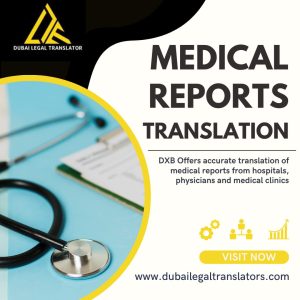Medical Document Translation Services: Ensuring Accuracy and Confidentiality
In today’s globalized world, medical document translation services have become essential for healthcare professionals, patients, and organizations alike. As medical knowledge transcends borders, accurate translation ensures patients receive the right treatment and healthcare providers offer proper care. From translating medical records to legal medical documentation, the role of translation services is paramount. This blog will explore the importance, challenges, and benefits of using professional medical document translation services.
Why Medical Document Translation Services Matter
Medical document translation services are crucial for bridging language barriers in healthcare. Whether for international patients or cross-border collaborations, effective translation minimizes misunderstandings and risks. Inaccurate translations in medical documents could lead to severe consequences, including incorrect diagnoses and ineffective treatments. Ensuring medical information is accurately conveyed is vital for patient safety and quality healthcare.
Essential Aspects of Medical Document Translation
Accuracy and precision are key in medical document translation. A minor error in a medical document could impact a patient’s health or even life. Professional medical document translation services employ certified translators with expertise in medical terminology and procedures. These translators understand the complex language of medical texts and have a deep knowledge of medical and healthcare protocols. This expertise helps to maintain the integrity of medical information throughout the translation process.
Confidentiality is another critical factor in medical document translation. Medical records contain sensitive information, and a breach of confidentiality could have serious legal implications. Professional services prioritize data protection, ensuring that all patient records and medical details remain secure and private. Most reputable medical document translation services have strict confidentiality agreements and use secure systems to prevent unauthorized access.

Challenges Faced in Medical Document Translation
Medical document translation services face unique challenges due to the technical language and complex nature of healthcare documents. Each medical field has specialized terminology, requiring translators to understand specific vocabulary and procedures. For instance, translating a cardiology report requires a translator with knowledge of heart-related terminology, while translating an oncology report demands expertise in cancer-related terms. This specialization makes medical translation challenging yet essential for accuracy.
Additionally, medical documents often include abbreviations, jargon, and culturally specific references that require precise interpretation. Translators must ensure that such elements are correctly translated for the target audience without altering the intended meaning. In this context, machine translation tools are not sufficient; only a skilled human translator can ensure that the nuances of medical language are accurately conveyed.
For more on why human translators are essential in medical fields, you may refer to Translation in Healthcare, a comprehensive article on the importance of human expertise in medical translation.
Benefits of Using Professional Medical Document Translation Services
Choosing professional medical document translation services offers numerous benefits. First, it ensures compliance with healthcare regulations and standards. For example, when dealing with international medical records, translations must meet the standards set by regulatory bodies. Professional translators understand these regulations, reducing the risk of non-compliance and potential legal issues.
Second, accurate translation enhances patient trust. Patients feel confident when they receive care in their native language or when their medical records are accurately translated. This trust leads to improved patient outcomes and better healthcare experiences overall.
Moreover, professional medical document translation services save time and reduce the risk of errors. With experienced translators handling complex medical terminology, healthcare providers can focus on patient care without worrying about language barriers. This streamlined process allows for better coordination among healthcare teams and improved patient satisfaction.
For healthcare providers interested in understanding translation impact, the World Health Organization’s guide on healthcare translation offers additional insights into global healthcare communication standards.
Final Thoughts
Medical document translation services are invaluable in today’s interconnected healthcare industry. They play a significant role in ensuring patient safety, enhancing trust, and improving healthcare outcomes across linguistic barriers. By working with certified, professional translators, healthcare providers can be confident in the accuracy and confidentiality of their translated medical documents.
In an era where patient care frequently crosses borders, reliable medical document translation services offer peace of mind for both patients and providers. Accurate, secure, and specialized, these services contribute to a more inclusive healthcare environment for everyone.
